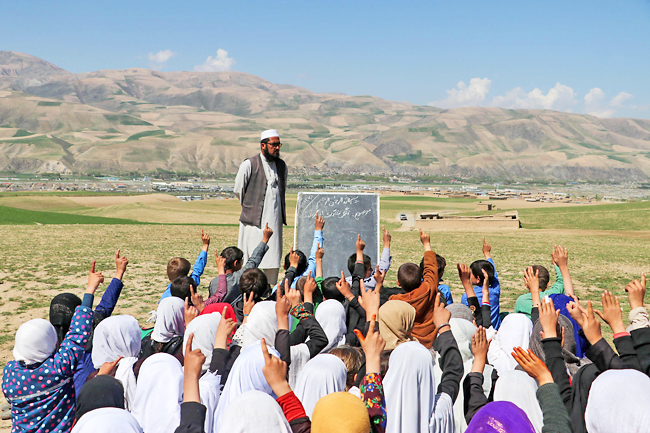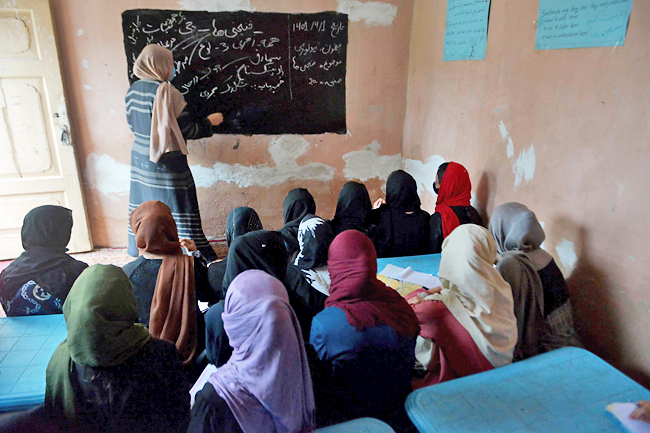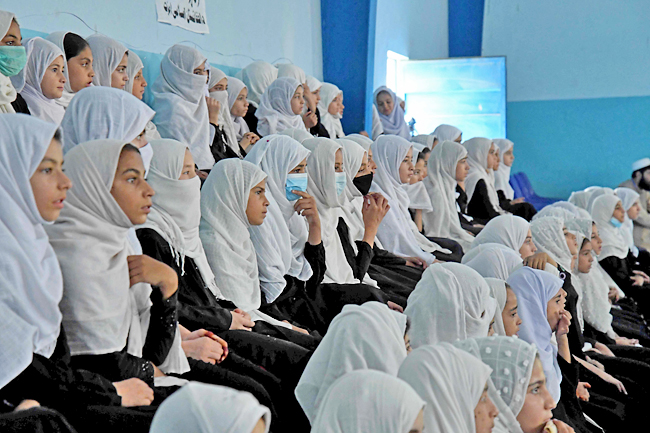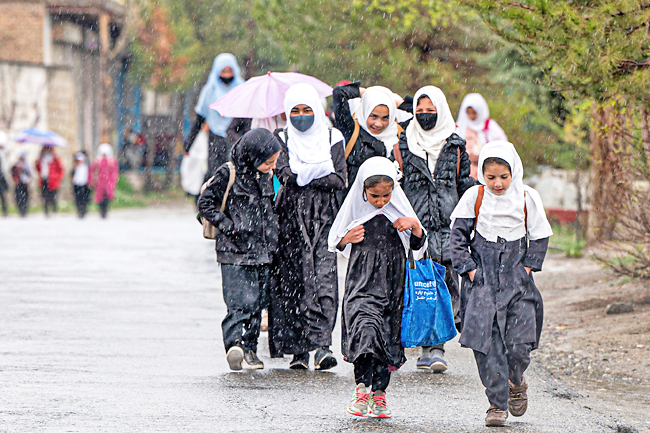KABUL (AFP) – Sequestered at home in a remote Afghan town, 18-year-old Shekiba often roams the house hunting for the patchy Internet signal that is her last link to an education.
Shekiba has turned to online learning since the Taleban returned to power in 2021 and shut her out of classrooms, signing up for live economics lectures she squints at on a pocket-sized phone screen.
She hopes to save for a laptop but is forced to buy expensive mobile data packages that still don’t guarantee a signal in the town of Ishkashim perched high in mountainous Badakhshan province.
“If there were no Internet issues, it would be much easier,” she told AFP by phone. “But it’s better to carry on, instead of sitting and doing nothing.”
“I just hope to study, to succeed, to progress. If one person progresses in a family, the whole family progresses, as well as the whole society.”
Boys and men returned to classes with the start of the Afghan new year, but girls and women will be left behind again by a Taleban government education blockade that is part of a raft of restrictions the United Nations has labelled “gender apartheid”.




While online alternatives have sprung up, a dearth of computers and Internet, as well as the isolation of learning via screen, makes them a poor substitute for in-person learning, students and teachers say.
Many of those alternatives also cannot provide diplomas, which offer a promise that qualifications will be acknowledged.
It’s unclear exactly how many girls and women are involved in online learning, but two higher education platforms report Afghans registering or applying in the tens of thousands since the Taleban takeover.
Begum Academy, an online platform with some 8,500 free videos in Dari and Pashto covering the Afghan secondary school curriculum, launched in December 2023 and quickly had more than 3,000 users.
Director Hamida Aman said parents are grateful but it’s hard for girls to stay driven.
“It’s difficult to get motivated when everything is closed to you and there’s no perspective of future,” she told AFP from France, where she is based.
“These girls cannot have certificates, or they cannot have the ambition to go to the university or to have any job later.”
Education for girls and women was a key aim of the United States-backed government but gains were largely limited to cities, with only 23 per cent of girls aged 13 to 18 in school nationwide, according to the International Crisis Group.
The think tank said that figure dropped to 13 per cent after the Taleban government issued its edicts barring female education in 2022. Zainab was soon to start high school when it came into effect and was twice rebuffed by an online school that was at capacity before she finally secured a place.
“Before taking online classes, we were idle at home. We were worried. We used to sleep most of the time, which made us depressed,” said Zainab, who asked not to use her full name for fear of reprisal.
Online classes “keep us busy”, she told AFP, but they “cannot replace schools”.
Ruhila, 22, teaches English classes online while trying to continue her university education, also virtually, and says the teaching helps her spirits.
“The only thing that gives me energy in the current situation is teaching these girls,” she said.









